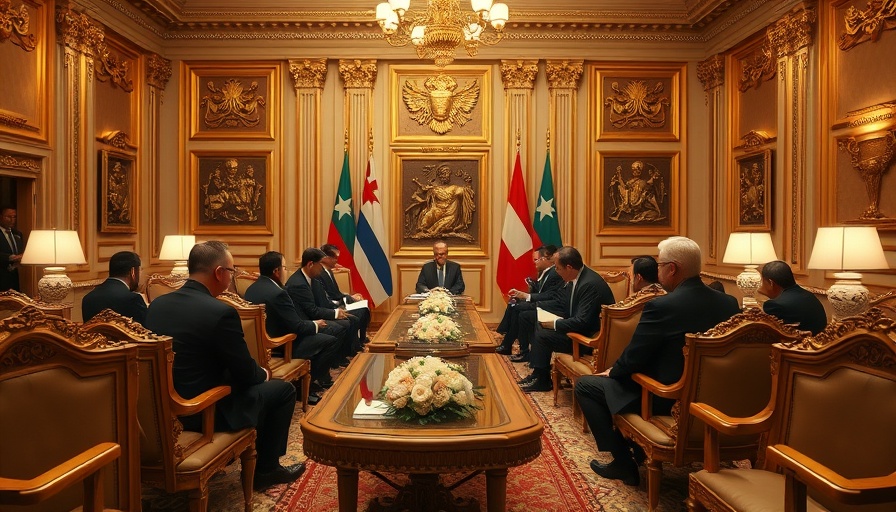
The Legacy of the Iran Nuclear Deal: A Double-Edged Sword
Ten years ago, the signing of the Joint Comprehensive Plan of Action (JCPOA) was heralded as a monumental diplomatic achievement, aimed at curbing Iran's nuclear ambitions while easing decades of sanctions. The deal, brokered between Iran and six world powers—including the United States, China, Russia, and key European nations—offered potential for a more stable geopolitical landscape. Yet, the subsequent U.S. withdrawal in 2018 has ignited renewed tensions, exemplifying the precarious nature of international agreements.
In 'What's the legacy of the Iran nuclear deal and its collapse? | Inside Story', the discussion dives into the intricate dynamics and implications of the Iran nuclear agreement collapse, prompting us to explore its broader legacy and impact.
The Diplomatic Framework: Hope Meets Reality
Initially, the JCPOA represented not just a ceasefire in diplomatic hostilities, but a framework for a potential thaw in U.S.-Iran relations. The lifting of sanctions was anticipated to revive Iran's economy; however, skepticism lingered about Iran’s compliance and intentions. While some observers praised the deal as a breakthrough, others feared it simply postponed inevitable conflict, particularly amidst presidential cycles affecting U.S. foreign policy.
Consequences of Collapse: Walking a Tightrope
With President Trump's perceived lack of trust in Iran's compliance, his decision to exit the JCPOA marked a significant escalation in tensions, leading to a harsh “maximum pressure” campaign that devastated the Iranian economy. Subsequent hostilities were not merely a backdrop but a catalyst for political upheavals and humanitarian crises within Iran. As sanctions tightened, the economic hardships experienced by ordinary Iranians starkly contradicted the promises flanking the deal’s inception.
Current Implications: A Tipping Point
In the wake of Israel's attacks and the escalating military responses from the U.S., the regional situation has become alarmingly volatile. The dynamics have shifted, with both Iranian leaders and global powers expressing hesitance toward future negotiations. The window for snapback sanctions looms large, set against a backdrop of fear and distrust, illustrating the perils of diplomacy without commitment.
Future Outlook: Can Diplomacy Prevail?
The question now is whether the embers of the JCPOA can reignite a dialogue that addresses both Iran's nuclear program and its broader regional influence. As tensions rise, leading to heightened military actions and geopolitical friction, the lessons from the JCPOA’s failure serve as a poignant reminder of the fragile nature of diplomacy in a world often ruled by mistrust.
 Add Row
Add Row  Add
Add 




Write A Comment